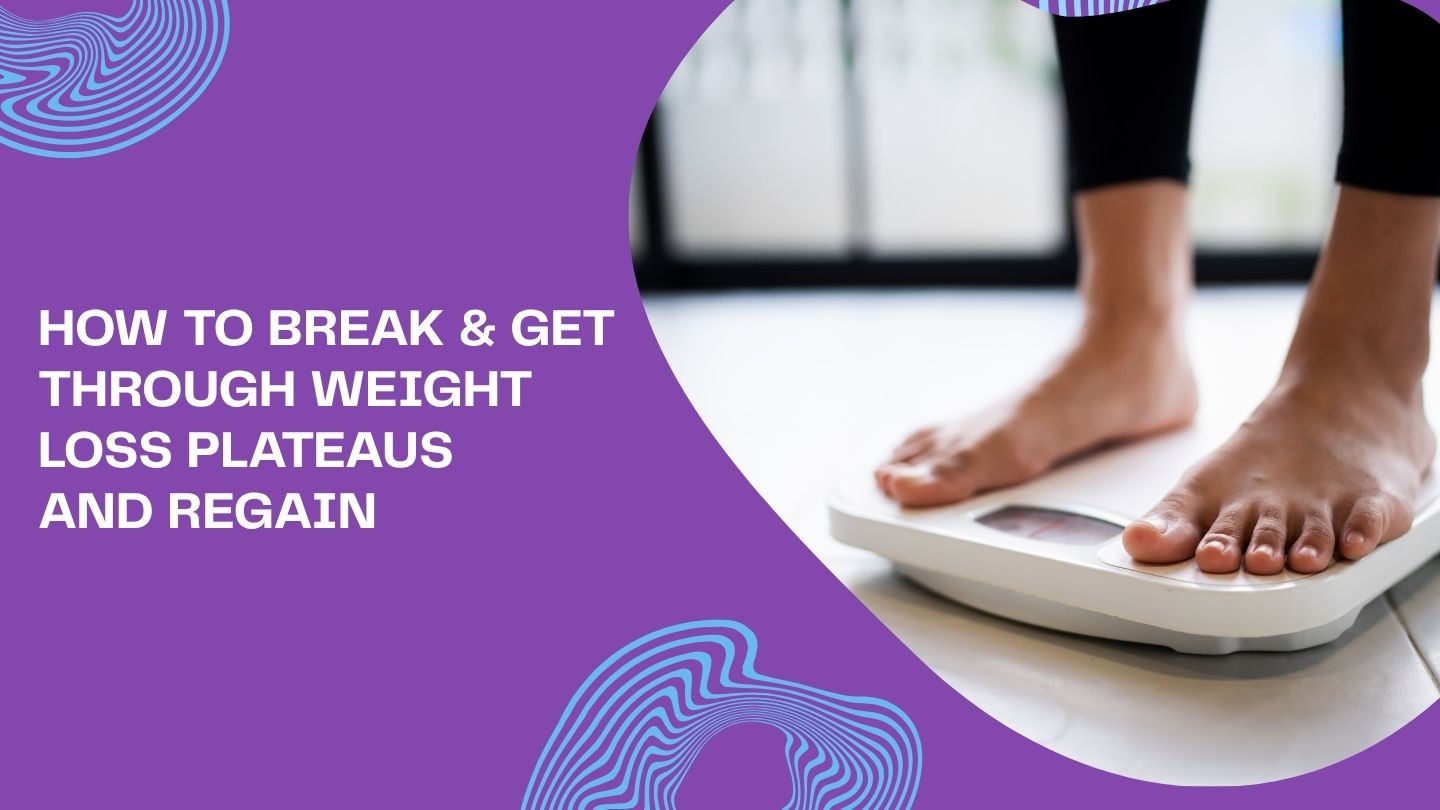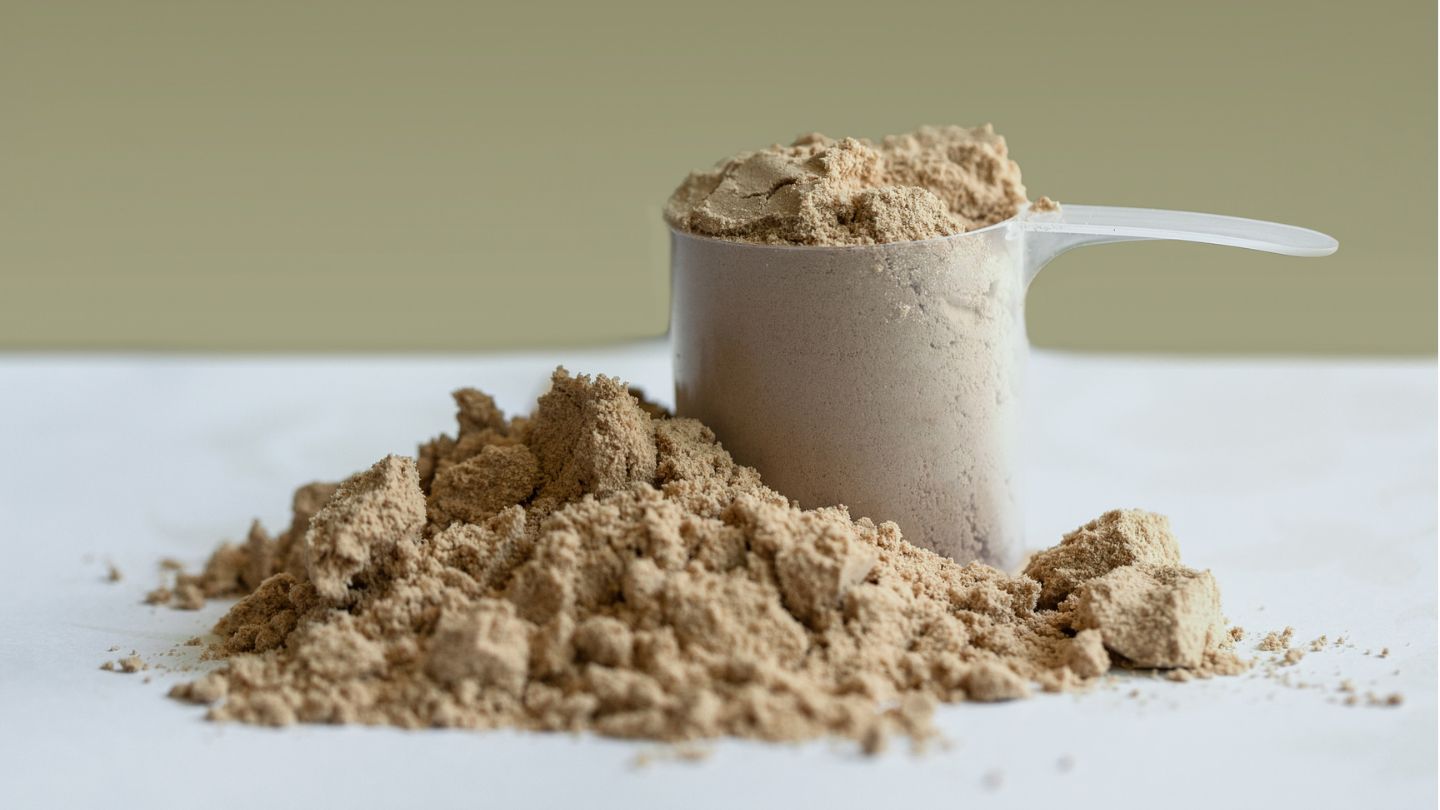
How to Break & Get Through Weight Loss Plateaus and Regain
Hitting a weight loss plateau can be frustrating, but it’s a normal part of the journey. In this blog, we’ll show you how to break through weight loss plateaus and regain your momentum. We’ll cover why plateaus happen and provide practical tips to tweak your diet, revamp your exercise routine, and adjust lifestyle factors. Ready to get back on track? Let’s dive in.
Key Takeaways
- Understand weight loss plateaus are normal as your body adapts; recognize factors like body adaptation and stress management to overcome them.
- Optimize your diet by increasing protein, reducing refined carbs, and adding fiber to feel full longer and effectively manage weight.
- Enhance physical activity with varied exercises and NEAT to boost metabolism and break through plateaus; prioritize lifestyle factors like sleep and stress management for overall success.
Understanding Weight Loss Plateaus
A weight loss plateau is a stall in weight loss after initial success. It’s like hitting a wall where, despite your best efforts, the scale just won’t budge. Understanding why this happens is the first step toward overcoming it. Weight loss plateaus happen because the body becomes more efficient at conserving energy as you lose weight. When your calorie intake matches your calorie expenditure, weight loss stalls.
Several factors contribute to weight loss plateaus, including:
- Body adaptation
- Food choices
- Stress
- Sleep-related issues
The body adapts to your new weight and finds a new equilibrium, making it harder to continue losing weight. This is a normal part of the weight loss journey and indicates that your body is adjusting to the changes, including initial weight loss and metabolic adaptation.
Breaking through a plateau involves reassessing dietary habits and making necessary adjustments. Understanding body weight homeostasis and the reasons behind weight loss plateaus, including set point theory, allows for the development of evidence-based strategies to achieve your weight loss goals.
Optimize Your Diet to Overcome Plateaus

Adjusting your diet can help break through weight loss plateaus. Common causes include:
- Overeating
- Insufficient protein
- Lack of exercise
- Poor sleep
Reducing calories cautiously, without dropping below 1,200 calories, and focusing on nutrient-dense foods while eating fewer calories can help you reduce food intake, burn calories, feel full longer, and overcome plateaus.
Reducing alcohol consumption is also important, as it can cause dehydration, disrupt sleep, and promote fat storage. To optimize your diet, focus on increasing protein intake, reducing refined carbs, and incorporating more fiber. These key areas will help you overcome plateaus and continue your weight loss journey while losing fat.
Increase Protein Intake
Enhancing protein intake is an effective strategy for overcoming weight loss plateaus. Sufficient protein preserves muscle mass, keeps metabolism active, and suppresses ghrelin, the hunger hormone. High-protein foods like eggs, beans, legumes, nuts, tofu, dairy, meat, and fish can help manage calorie intake more effectively.
In addition to preserving muscle mass, protein and fiber promote feelings of fullness, which can help you reduce overall food intake and manage your weight better. Long-term protein consumption plays a crucial role in maintaining muscle mass and supporting your weight management goals.
Reduce Refined Carbs
Cutting down on refined carbs can help break through a weight loss plateau. Refined carbs cause rapid blood sugar spikes, leading to energy crashes and increased hunger. Switching to whole grains can stabilize blood sugar and reduce hunger spikes.
Whole grains provide more fiber and essential nutrients, contributing to better appetite control and overall health. By making this simple switch to healthy foods, you can reduce your calorie intake and improve your weight loss efforts.
Incorporate More Fiber
Adding more dietary fiber to your diet promotes fullness and aids weight management. Soluble dietary fibre supplementation:
- Dissolves in water, helping you feel full longer and reducing calorie intake
- Is beneficial for digestive health
- Supports gut health by acting as a prebiotic
By promoting fullness, soluble fiber can lead to reduced food intake and assist in your weight management efforts. Including fiber-rich foods in your diet can help you achieve your weight loss goals, such as:
- Fruits
- Vegetables
- Whole grains
- Legumes
Enhance Physical Activity

Increasing physical activity is key to overcoming weight loss plateaus. It helps counteract a slowing metabolism due to weight loss. Varying exercise routines and integrating different types of physical activity can yield better results.
Increased muscle mass through resistance training can boost your metabolism and aid in your weight loss efforts. By incorporating these strategies for building muscle, you can overcome plateaus and continue progressing toward your muscle-building weight loss goals.
Mix Up Your Exercise Routine
Varying your exercise routine prevents your body from adapting and losing effectiveness. Repetition leads to adaptation, so incorporating different workouts keeps your body challenged and helps prevent plateaus.
Resistance training should be included 2-3 times weekly to effectively combat weight loss plateaus. This type of training helps maintain muscle mass and boosts metabolism, aiding in your weight loss journey.
Increase Non-Exercise Activity Thermogenesis (NEAT)
Boosting Non-Exercise Activity Thermogenesis (NEAT) can significantly increase total daily energy expenditure and create a negative energy balance. Simple actions like walking or using stairs contribute to overall energy expenditure, aiding weight management.
Incorporating these small movements into your daily routine can lead to substantial improvements in weight loss over time. By making these simple lifestyle changes, you can enhance your weight loss efforts and achieve rapid weight loss progress to overcome plateaus.
Improve Lifestyle Factors
Enhancing lifestyle factors is crucial for weight management and overcoming plateaus. Key factors include:
- Consistent sleep schedules help regulate appetite and metabolism.
- Stress impacts eating habits, often increasing appetite, and regulating gastrointestinal hormones.
- Healthcare professionals can offer dietary and exercise modifications to help overcome plateaus.
By managing stress effectively and prioritizing quality sleep, you can improve your overall health and support your weight loss efforts while maintaining a healthy weight. Additionally, explore tips to have a healthy summer post-bariatric surgery to stay on track with your goals during the warmer months.
Manage Stress Effectively
Effectively managing stress is vital for overcoming weight loss plateaus. Elevated cortisol, a stress hormone, from stress increases body fat storage and triggers cravings. Mindfulness practices can lower cortisol levels, helping mitigate weight gain from stress.
Stress reduction practices like deep breathing exercises, gentle yoga, or a 10-minute meditation can help you feel calmer and overcome weight loss plateaus. Managing stress is good for overall health and may ease your weight loss journey while following a weight loss program.
Prioritize Quality Sleep
Quality sleep is crucial for weight management and maintaining energy balance. Inadequate sleep increases daily energy intake and disrupts hunger hormones, raising ghrelin and lowering leptin. On average, sleep-deprived individuals consume 385 more calories daily.
Improving sleep quality involves a consistent sleep schedule, creating a dark environment, and avoiding screens before bedtime. Prioritizing quality sleep supports weight loss efforts and helps overcome plateaus.
Consider Advanced Strategies
When traditional methods fall short, advanced strategies can help break through weight loss plateaus. Intermittent fasting creates a calorie deficit and supports fat burning. Consulting a registered dietitian or healthcare provider before starting intermittent fasting is recommended.
Mindset plays a significant role in maintaining healthy adults’ eating behaviors. Exploring advanced strategies and seeking professional help can aid in achieving weight loss goals.
Intermittent Fasting
Intermittent fasting is an effective strategy for breaking through weight loss plateaus. Time-restricted eating, within specific hours, creates a calorie deficit and supports fat burning. Recommended eating windows are 8 or 10 hours.
Weight loss from time-restricted eating is similar to that of a calorie-restricted diet. For optimal results, eating earlier in the day and avoiding late-night eating is recommended.
Seek Professional Help
Professional help can be transformative in your weight loss journey. Consulting a bariatric specialist may be necessary for those unsuccessful with lifestyle changes alone. A healthcare professional can provide personalized advice tailored to individual needs.
Wellstar Comprehensive Bariatric Surgery Services offers surgical and non-surgical weight loss solutions. Their expertise and customized programs can help achieve long-term weight loss and enhance quality of life.
Wrapping Up
In summary, breaking through weight loss plateaus requires a multifaceted approach. By understanding why plateaus happen, optimizing your diet, enhancing physical activity, improving lifestyle factors, and considering advanced strategies, you can overcome these challenges and continue your weight loss journey.
Remember, you’re not alone in this journey. If you need additional support, consider seeking professional help from Wellstar Comprehensive Bariatric Services. With the right strategies and support, including bariatric programs in LaGrange and the surrounding areas like Marietta, Smyrna, Cobb, Austell, and West GA, you can achieve your weight loss goals and maintain a healthy lifestyle.
Frequently Asked Questions
What is a weight loss plateau?
A weight loss plateau is a frustrating yet common stall where you stop losing weight despite your continued hard work. Remember, it’s a temporary phase, so stay motivated and keep pushing forward!
How can I optimize my diet to overcome a weight loss plateau?
To overcome your weight loss plateau, boost your protein intake, cut down on refined carbs, and add more fiber-rich foods to your meals. These changes can reignite your progress and keep you on track!
What role does physical activity play in overcoming weight loss plateaus?
Boosting physical activity and mixing up your routine can effectively break through weight loss plateaus by enhancing your metabolism. Keep moving and stay motivated—you’re capable of achieving your goals!
Why is managing stress important for weight loss?
Managing stress is crucial for weight loss because lowering cortisol levels helps prevent belly fat accumulation and reduces cravings, making your journey to a healthier you more achievable. Embrace stress management techniques to reach your weight loss goals!
What services does Wellstar Comprehensive Bariatric Services offer?
Wellstar Comprehensive Bariatric Services provides a range of effective surgical and non-surgical weight loss solutions, along with personalized, medically supervised programs. You can take charge of your health and achieve your weight loss goals with their expert support!

































